BMW X5 vs Peugeot 3008 – Which one offers the better deal?
Two cars, one duel: BMW X5 meets Peugeot 3008.
Which one wins in performance, efficiency and value for money? Find out now!
Costs and Efficiency: Price and efficiency are often the first things buyers look at. Here it becomes clear which model has the long-term edge – whether at the pump, the plug, or in purchase price.
Peugeot 3008 has a clearly advantage in terms of price – it starts at 35100 £, while the BMW X5 costs 77100 £. That’s a price difference of around 41915 £.
Fuel consumption also shows a difference: BMW X5 manages with 0.80 L and is therefore somewhat more efficient than the Peugeot 3008 with 0.90 L. The difference is about 0.10 L per 100 km.
As for range, the Peugeot 3008 performs significantly better – achieving up to 698 km, about 593 km more than the BMW X5.
Engine and Performance: Power, torque and acceleration are the classic benchmarks for car enthusiasts – and here, some clear differences start to show.
When it comes to engine power, the BMW X5 has a significantly edge – offering 625 HP compared to 325 HP. That’s roughly 300 HP more horsepower.
In acceleration from 0 to 100 km/h, the BMW X5 is convincingly quicker – completing the sprint in 3.90 s, while the Peugeot 3008 takes 6 s. That’s about 2.10 s faster.
In terms of top speed, the BMW X5 performs slightly better – reaching 250 km/h, while the Peugeot 3008 tops out at 220 km/h. The difference is around 30 km/h.
There’s also a difference in torque: BMW X5 pulls clearly perceptible stronger with 750 Nm compared to 511 Nm. That’s about 239 Nm difference.
Space and Everyday Use: Cabin size, boot volume and payload all play a role in everyday practicality. Here, comfort and flexibility make the difference.
Both vehicles offer seating for 5 people.
In curb weight, Peugeot 3008 is evident lighter – 1648 kg compared to 2240 kg. The difference is around 592 kg.
In terms of boot space, the BMW X5 offers slightly more room – 650 L compared to 520 L. That’s a difference of about 130 L.
In maximum load capacity, the BMW X5 performs evident better – up to 1870 L, which is about 390 L more than the Peugeot 3008.
When it comes to payload, BMW X5 noticeable takes the win – 705 kg compared to 467 kg. That’s a difference of about 238 kg.
Who wins the race?
The BMW X5 proves to be wins the duel decisively and therefore becomes our DriveDuel Champion!
BMW X5 is the better all-rounder in this comparison.
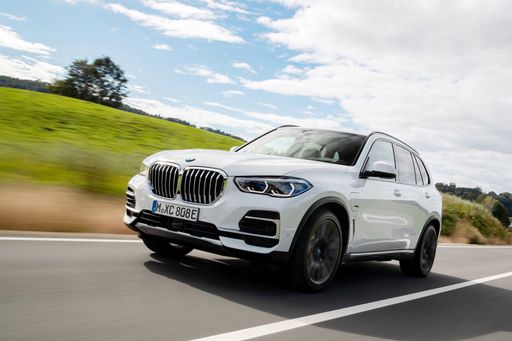
BMW X5
BMW X5
The BMW X5 embodies a perfect blend of luxury and performance, offering a driving experience that is both dynamic and comfortable. Its elegant design is complemented by a spacious, high-quality interior that prioritises driver and passenger comfort. Advanced technology features ensure that the X5 meets the demands of modern drivers, providing both entertainment and safety on the road.
details @ press.bmwgroup.com
@ press.bmwgroup.com
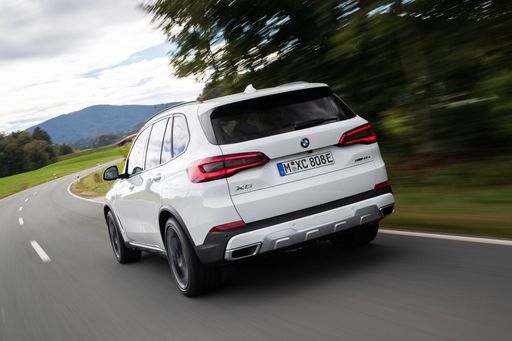 @ press.bmwgroup.com
@ press.bmwgroup.com
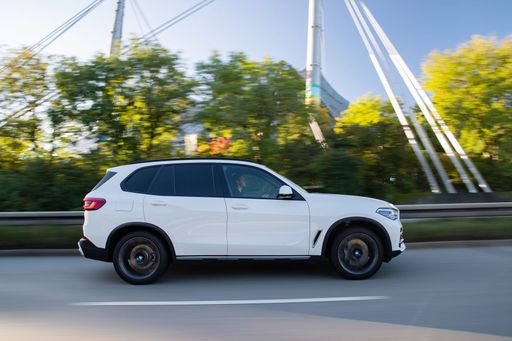 @ press.bmwgroup.com
@ press.bmwgroup.com
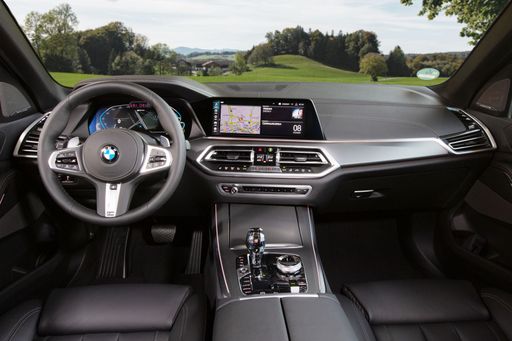 @ press.bmwgroup.com
@ press.bmwgroup.com
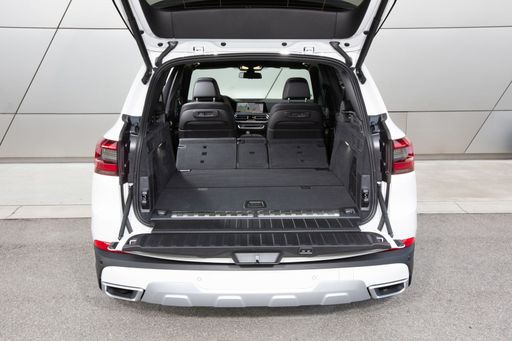 @ press.bmwgroup.com
@ press.bmwgroup.com
Peugeot 3008
The Peugeot 3008 is a compact SUV that seamlessly combines sleek design with modern functionality. Its interior offers a sophisticated and comfortable driving experience, characterised by high-quality materials and innovative technology features. With its dynamic performance and stylish aesthetics, the 3008 stands out in the competitive world of family SUVs.
details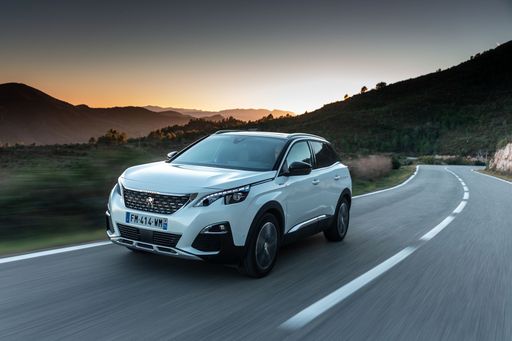 @ media.stellantis.com
@ media.stellantis.com
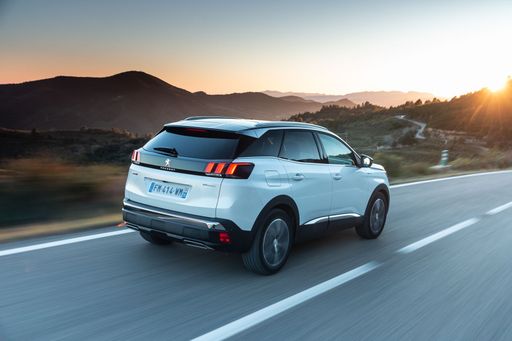 @ media.stellantis.com
@ media.stellantis.com
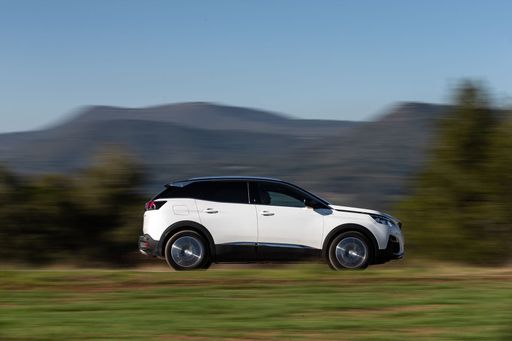 @ media.stellantis.com
@ media.stellantis.com
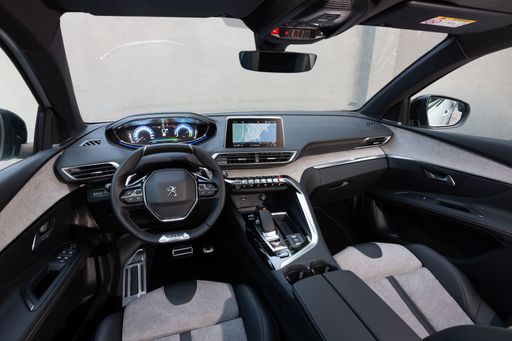 @ media.stellantis.com
@ media.stellantis.com

|

|
|
|
|
Costs and Consumption |
|
|---|---|
|
Price
77100 - 143500 £
|
Price
35100 - 51400 £
|
|
Consumption L/100km
0.8 - 12.8 L
|
Consumption L/100km
0.9 - 5.4 L
|
|
Consumption kWh/100km
-
|
Consumption kWh/100km
16.9 - 17.8 kWh
|
|
Electric Range
105 km
|
Electric Range
85 - 698 km
|
|
Battery Capacity
25.70 kWh
|
Battery Capacity
0.4 - 96.9 kWh
|
|
co2
19 - 289 g/km
|
co2
0 - 121 g/km
|
|
Fuel tank capacity
69 - 83 L
|
Fuel tank capacity
55 L
|
Dimensions and Body |
|
|---|---|
|
Body Type
SUV
|
Body Type
SUV
|
|
Seats
5
|
Seats
5
|
|
Doors
5
|
Doors
5
|
|
Curb weight
2240 - 2495 kg
|
Curb weight
1648 - 2337 kg
|
|
Trunk capacity
500 - 650 L
|
Trunk capacity
470 - 520 L
|
|
Length
4935 - 4948 mm
|
Length
4542 mm
|
|
Width
2004 - 2015 mm
|
Width
1895 mm
|
|
Height
1755 - 1765 mm
|
Height
1641 mm
|
|
Max trunk capacity
1720 - 1870 L
|
Max trunk capacity
1430 - 1480 L
|
|
Payload
565 - 705 kg
|
Payload
383 - 467 kg
|
Engine and Performance |
|
|---|---|
|
Engine Type
Plugin Hybrid, Petrol MHEV, Diesel MHEV
|
Engine Type
Plugin Hybrid, Electric, Petrol MHEV
|
|
Transmission
Automatic
|
Transmission
Automatic
|
|
Transmission Detail
Automatic Gearbox
|
Transmission Detail
Dual-Clutch Automatic, Reduction Gearbox
|
|
Drive Type
All-Wheel Drive
|
Drive Type
Front-Wheel Drive, All-Wheel Drive
|
|
Power HP
298 - 625 HP
|
Power HP
145 - 325 HP
|
|
Acceleration 0-100km/h
3.9 - 6.1 s
|
Acceleration 0-100km/h
6 - 10.2 s
|
|
Max Speed
233 - 250 km/h
|
Max Speed
170 - 220 km/h
|
|
Torque
540 - 750 Nm
|
Torque
230 - 511 Nm
|
|
Number of Cylinders
6 - 8
|
Number of Cylinders
3 - 4
|
|
Power kW
219 - 460 kW
|
Power kW
107 - 239 kW
|
|
Engine capacity
2993 - 4395 cm3
|
Engine capacity
1199 - 1598 cm3
|
General |
|
|---|---|
|
Model Year
2023 - 2025
|
Model Year
2024 - 2025
|
|
CO2 Efficiency Class
B, G
|
CO2 Efficiency Class
B, A, D
|
|
Brand
BMW
|
Brand
Peugeot
|
Is the BMW X5 offered with different drivetrains?
The BMW X5 is available as All-Wheel Drive.
The prices and data displayed are estimates based on German list prices and may vary by country. This information is not legally binding.
